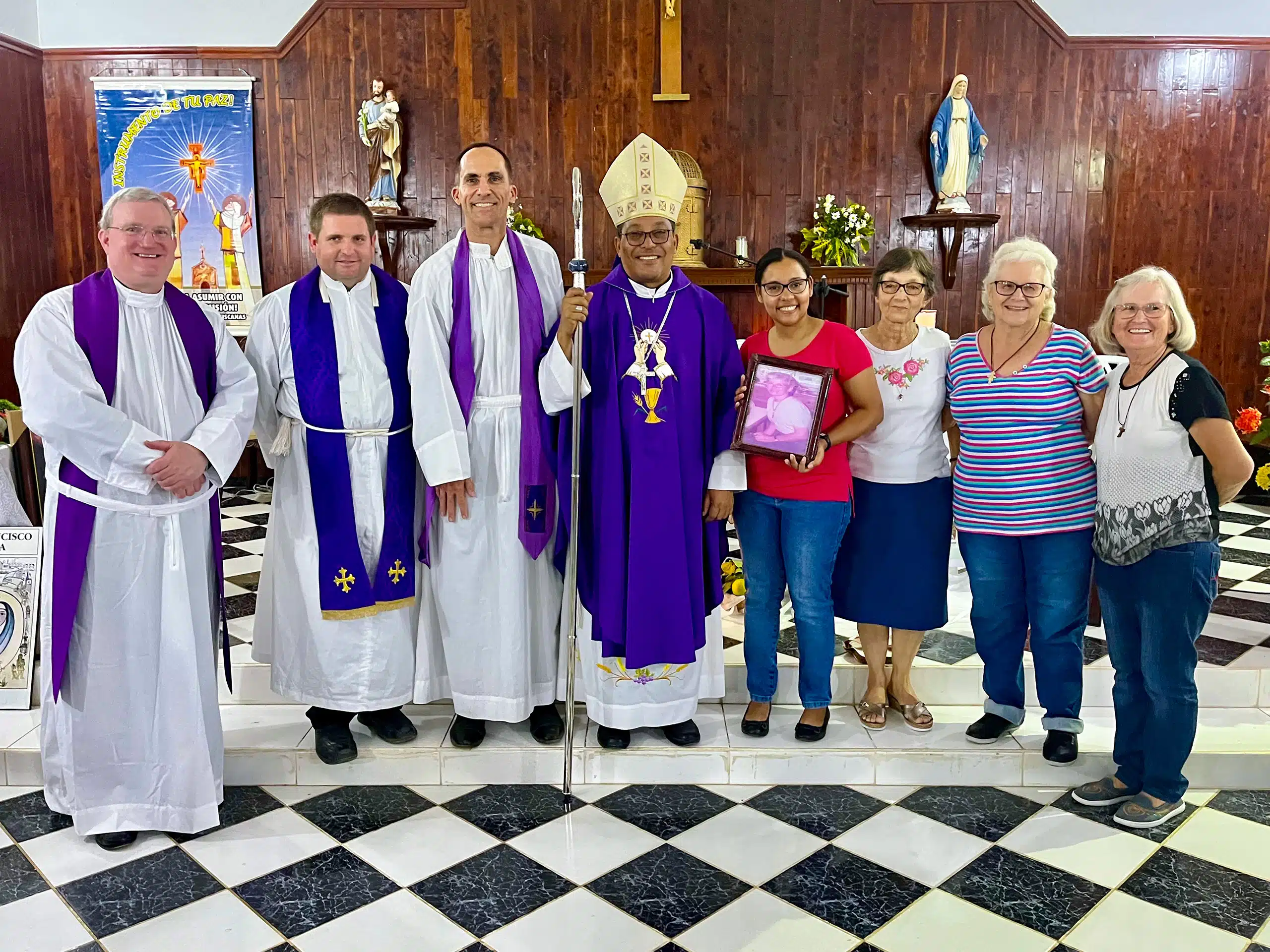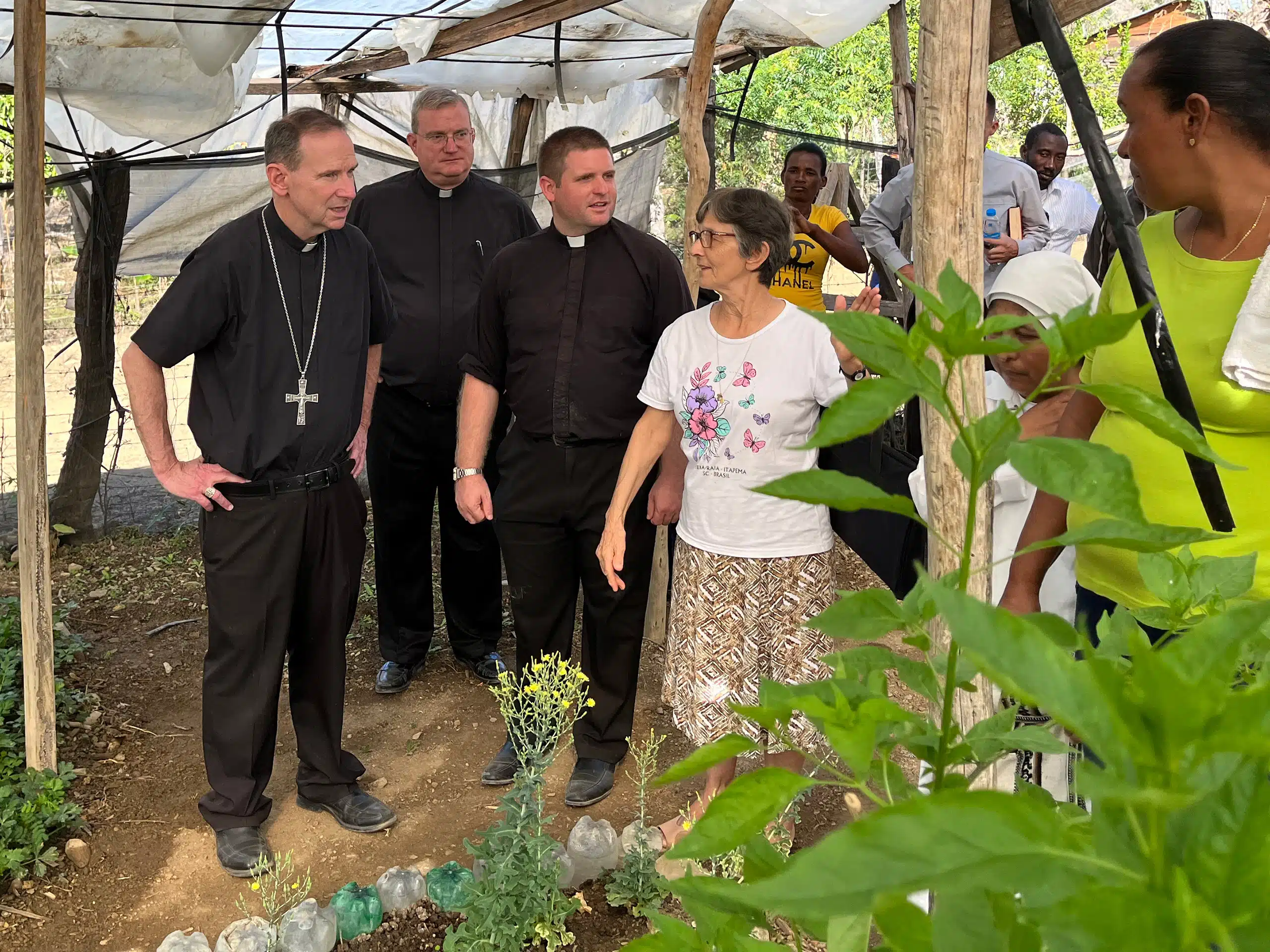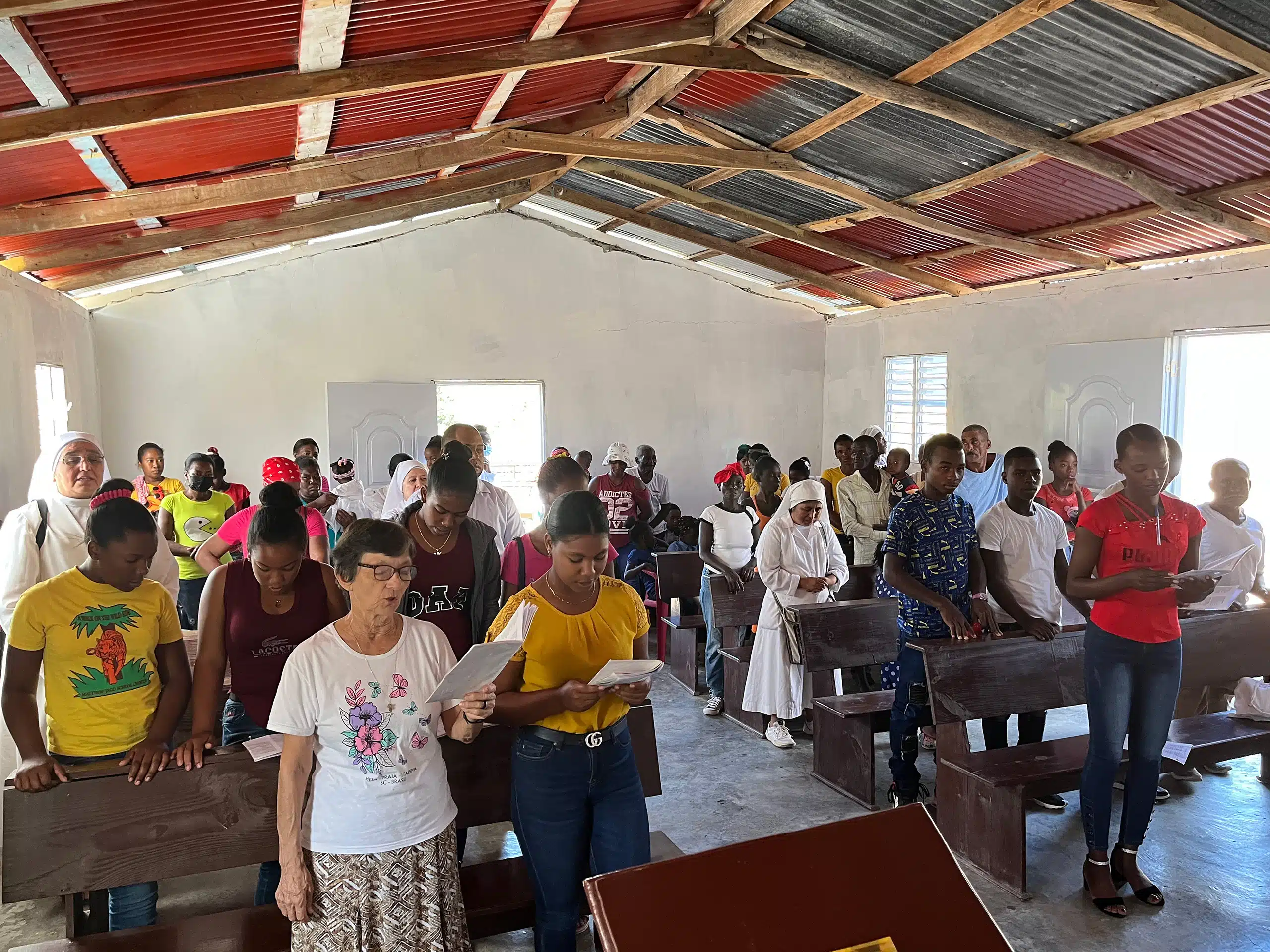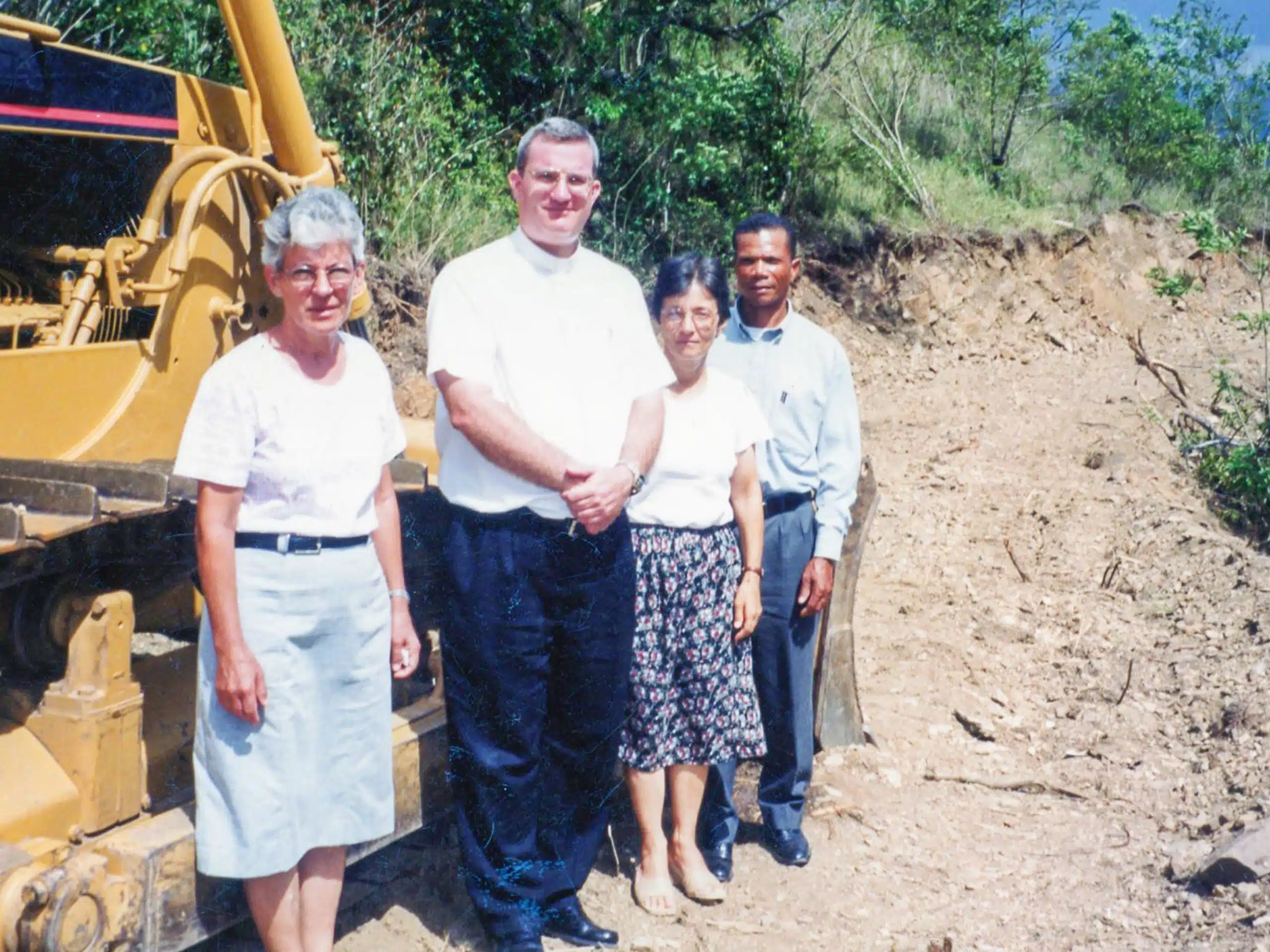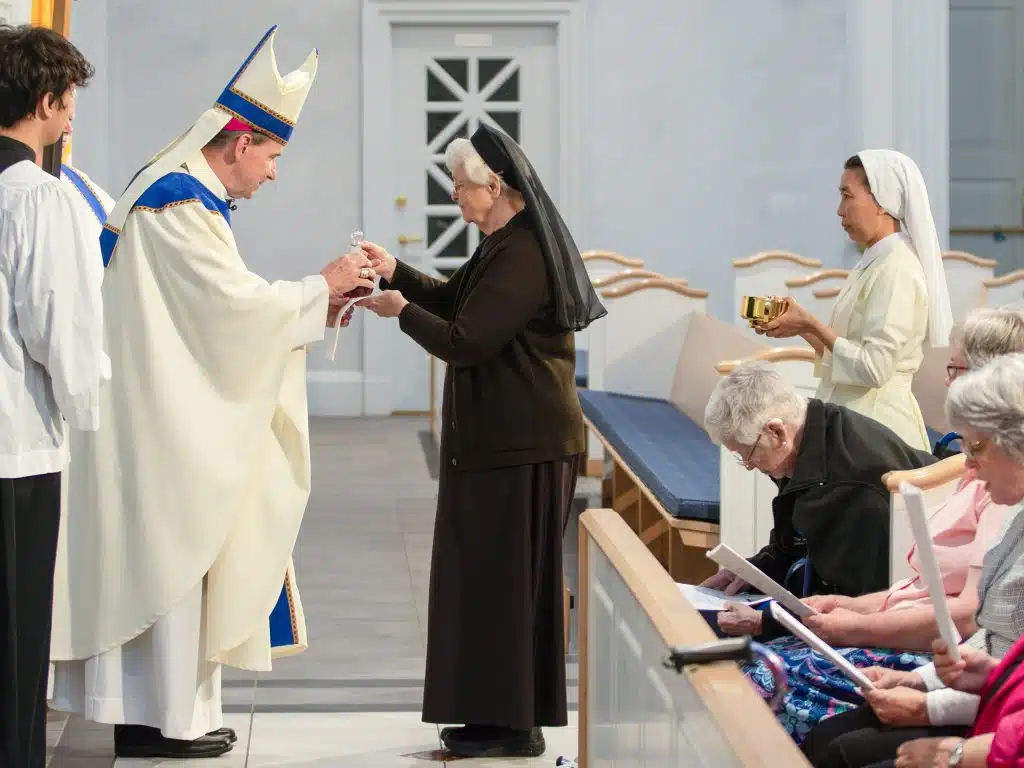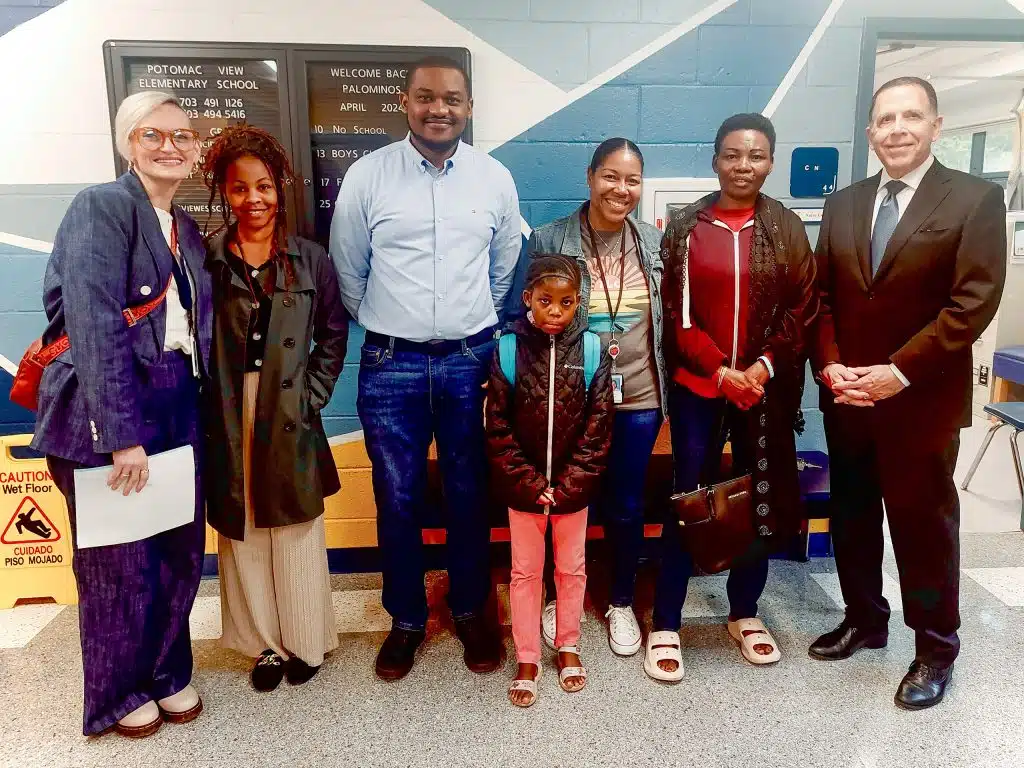For nearly as long as there has been a diocesan mission in the Dominican Republic, the Catechetical Franciscan Sisters of Brazil have been there, working alongside priests to evangelize and expand access to basic amenities in the island nation’s rural countryside.
The San Juan de la Maguana diocese marked the 25th anniversary of the sisters’ service at a special Mass Dec. 2 celebrated by Bishop Tomás Alejo Concepción at San Jose Church in Pedro Santana. When the sisters arrived, the local pastor was Father Patrick L. Posey, now rector of the Cathedral of St. Thomas More in Arlington and director of the Arlington Mission Office. They invited him back to deliver the anniversary homily.
“The role of a missionary is to bring the face of Christ to the other. To show the Father’s love not only by words but also with actions,” he said. For 25 years, the sisters have done that, he said, working with youth and adults, especially women, to form catechists, foster literacy programs and facilitate the construction of roads, aqueducts and latrines.
“They’re truly Franciscan in the sense that they are of service. They are there to serve the people of God, which they have done well for many, many years.”
Sisters Gracia Viel and Hedwiges Rossi arrived in Pedro Santana, on the country’s western border with Haiti, Dec. 2, 1997. The retired schoolteachers came from the metropolis of São Paulo to a challenging landscape without indoor running water, telephone service or reliable electricity. At first, they slept in the homes of a local parishioner, as people wondered whether the sisters would leave as previous religious orders had done, after concluding the environment was too difficult.
The sisters’ charism to seek out the neediest led them to forge an agreement with the San Juan de la Maguana bishop to serve there. Five years later, tragedy struck. While returning from a motorcycle trip in 2002 to obtain prescription medication for rural patients who faced impossibly long walks to reach a hospital, Sister Rossi was assaulted and robbed. An assailant’s blow to her head with a lead pipe proved fatal as she later succumbed to her wounds.
Fears mounted that the sisters would abandon the parish. The mother superior concluded the mission was too important and another sister was assigned.
When Bishop Michael F. Burbidge met the sisters in January during his visit, he was struck by their missionary hearts and sustained passion and zeal for their work, despite the passage of time.
“The people are drawn to the sisters, and I think it’s because they are aware of how much the sisters love them and the warmth that they bring.”
Sister Gracia, now accompanied by Sister Albertina “Betty” de Souza, has been there all 25 years. Despite her diminutive size, mission veterans say she commands respect as a strong-willed woman of faith.
“She’s in the middle of everything,” Father Posey said, whether it’s praying with a family during the country’s traditional nine-day mourning period for a loved one, or challenging a local politician to address his constituents’ plight. “She is a Dominicana.”
Father Stephen F. McGraw, San Jose’s current pastor, said Sister Gracia is known endearingly to some as the Brazilian engineer because of the way she takes charge of building projects, which often require people savvy and dealmaking. “She’s the best general contractor I could have,” he said. “That has been invaluable.”
Sister Betty started her third stint on the island in 2016. The duo’s intrepid, can-do attitude is contagious. Recently, the order received its first native profession, Sister Maria Luz, who is now in the capital, Santo Domingo. Another, Maria Aquino, has been in formation for four years. The Poor Sisters of St. Joseph, a Spanish-speaking order with a presence in Alexandria, are exploring a partnership with the diocesan-supported San Francisco de Asis Church in Bánica.
Collectively, the sisters’ and priests’ missionary efforts have dramatically enhanced the quality of life for parishioners. Journeys that took days on foot or by mule can be completed in hours on new roadways that also bring produce to market faster. Better sanitation and nutrition have reduced once-rampant parasites and improved health. But bringing the Good News and the sacraments to such a dispersed populace remains a challenge — one to which the sisters’ passion for formation and catechesis is well-suited. The proliferation of televisions, smartphones and other distractions poses another barrier.
Bolivar Yohanser Mora was 12 when the sisters arrived. He later joined their catechetical efforts and trips up the mountain to the small communities or “campos.” Mora, now a doctor in Ohio, said words alone cannot describe the sisters’ positive impact, from evangelization to infrastructure.
“It’s just amazing. They have given everything to the community and people and keep finding ways to continue helping.”
Bishop Burbidge said the work of the sisters illustrates Pope Francis’ call for all Catholics to be missionary disciples, wherever they are situated.
“That doesn’t necessarily mean that we have to go to a foreign country, but it does mean that we have to go out of our comfort zone at times to reach out in faith to people who may be on the outskirts or who may have wandered away from the Lord and go out to them and invite them, embrace them and assure them of God’s desire for them to come home,” he said.
Schweers can be reached at [email protected].
Find out more
Eleven diocesan priests have ministered to the Bánica mission: Msgr. Thomas J. Cassidy; Father Gerard Creedon; Father Jeb S. Donelan (current); Father Daniel N. Gee; Father Stephen F. McGraw (current); Father Christopher D. Murphy; Father John T. O’Hara; Father Keith M. O’Hare; Father Patrick L. Posey; Father Donald J. Rooney; and Father Jason Weber. Read more at arlingtonmissions.org/banica-mission.
